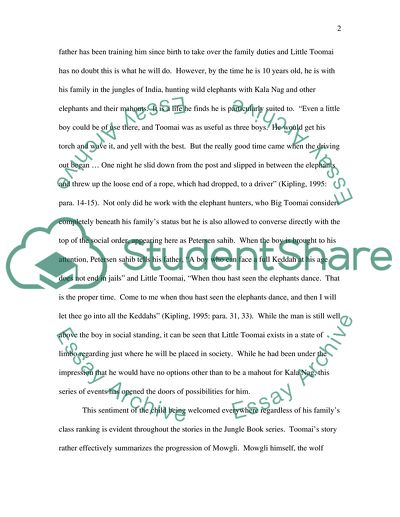Cite this document
(“Imperialism as Savior in Toomai of the Elephants and Kiplings Jungle Essay”, n.d.)
Retrieved from https://studentshare.org/literature/1542702-imperialism-as-savior-in-toomai-of-the-elephants-and-kiplings-jungle-book
Retrieved from https://studentshare.org/literature/1542702-imperialism-as-savior-in-toomai-of-the-elephants-and-kiplings-jungle-book
(Imperialism As Savior in Toomai of the Elephants and Kiplings Jungle Essay)
https://studentshare.org/literature/1542702-imperialism-as-savior-in-toomai-of-the-elephants-and-kiplings-jungle-book.
https://studentshare.org/literature/1542702-imperialism-as-savior-in-toomai-of-the-elephants-and-kiplings-jungle-book.
“Imperialism As Savior in Toomai of the Elephants and Kiplings Jungle Essay”, n.d. https://studentshare.org/literature/1542702-imperialism-as-savior-in-toomai-of-the-elephants-and-kiplings-jungle-book.


